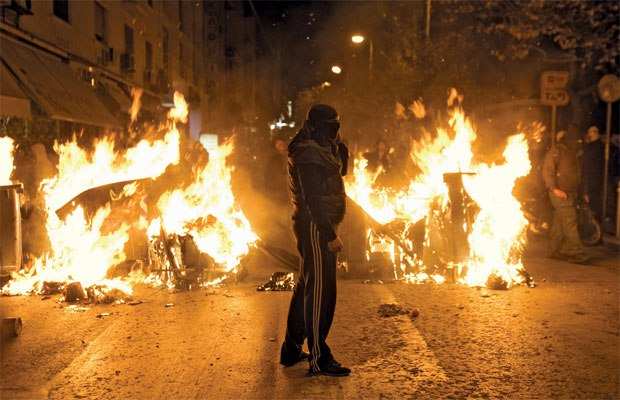When Sports Get Ugly
About a week ago, the Western Canadian city of Vancouver made international headlines for two reasons. One, it was the venue for the final game of the National Hockey League (NHL) in which the Boston Bruins defeated the Vancouver Canucks to claim the prestigious Stanley Cup.
About a week ago, the Western Canadian city of Vancouver made international headlines for two reasons. One, it was the venue for the final game of the National Hockey League (NHL) in which the Boston Bruins defeated the Vancouver Canucks to claim the prestigious Stanley Cup.
The other reason, however, is for the riots that ensued in the city following the big game.
The riots started with the Canucks fans burning the Bruins’ flag and eventually led to 140 people being injured, 101 arrests by the police, 15 burned vehicles and damage to several buildings.
Interestingly, there have been many hockey related riots in Canada in the past after the conclusion of the championship game. But it is not just the Canadian people who have seen sport-related riots in the past.
We in India have also had a history of riots over sports, unsurprisingly over cricket which is seen as nothing short of a religion by many Indians.
Consider this: Communal riots took place after India won against Pakistan in the 2003 World Cup and again after India beat Pakistan in the 2007 ICC World T20 tournament.
The Indian cricket team has also been the target of the masses at times such as in 2007, when M.S. Dhoni’s house was destroyed by angry cricket fans after India’s humiliating loss to Bangladesh during the 2007 World Cup.
The trend of riots caused over sports can also be witnessed in other countries. In England, there have been countless riots caused due to football (called football hooliganism) including many in which people have gotten badly injured and even killed.
But what causes fans supporting their favourite teams to turn into angry mobs?
Experts believe that it is the feeling of being in a crowd that may be a large contributor to such activities. When a person is a fan of a specific team, they automatically identify themselves as being part of a group which also supports this team.
This becomes important for an individual as a way of socializing with others and sometimes as moral support. The problem occurs, however, when certain factors cause these feelings to intensify such as the high adrenaline levels one experiences at sporting events.
Many sports events also provide alcohol which just further causes a crowd to have less control over their actions. In addition to that, being a part of a group makes a person more difficult to identify which causes a person to display more extreme behaviour.
Although a group of fans may exhibit this behaviour to show their support for a team, the effects are nearly always opposite. In the aftermath of such events, the sport, the team and the fans are the ones who get hurt for the actions taken by some unruly people. Such displays only promote a lack of sportsmanship, something which all athletes and their supporters should encourage.
Though it is important for the authorities to be able to control such type of behaviour, as sports fans, it is equally important for us to display a sense of responsibility when showing our support.
First, as fans, it is important for us to refrain from violence or illegal activity when supporting the team. At times, peer pressure from the fans can also prevent violence from the public.
Second, sometimes even ordinary sports fans can make a difference. After the Vancouver riots, thousands of residents of the city volunteered to help clean the damage caused by the riots to “show that all Canucks fans are not like that.”
And last, it is important to just relax sometimes. After all, only one team can win. And if the team you support doesn’t win the one time, the best thing to do is to hope that they perform better next time. That’s the real spirit of the game!
To join us on Facebook Click Here and Subscribe to UdaipurTimes Broadcast channels on GoogleNews | Telegram | Signal



